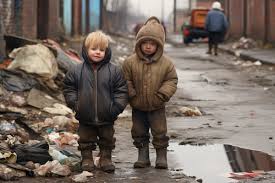At a time when housing costs are high and social safety nets appear to be weakening, the impact of eviction, foreclosure, and housing loss on families is becoming increasingly apparent. A new study published in JAMA Network Open highlights the detrimental effects of housing instability on children’s mental health, shedding light on a pressing societal issue.
Housing Loss and Mental Health: The Link
Dr. Jamie Hanson, associate professor in psychology at the University of Pittsburgh and the study’s lead author, explained that while the effects of housing loss on adults are well-documented, the consequences for children are less understood. “We knew that eviction or housing loss can impact the adults in a household, but we didn’t know as much about what happens to kids in families facing eviction or housing loss,” Hanson stated.
The research, which analyzed data from over 36,000 families, found a significant correlation between parental stress regarding eviction or foreclosure and increased rates of depression and anxiety disorders in children. Hanson noted that when a caregiver experienced high levels of stress, the likelihood of a child developing depression increased by 10% to 35%.
Young Children at Higher Risk
One of the most striking findings of the study was the impact on children under the age of 9. Typically, high rates of depression are not observed in young children. However, the study found that parental stress about housing loss was linked to higher reports of depression and anxiety among children younger than 8 or 9. “Normally, we don’t see high rates of depression in young kids, but a parent’s anxiety or stress about housing loss was related to those issues being reported more,” Hanson said.
Interestingly, the study found no strong connections between housing loss stress and other mental health conditions such as ADHD and behavioral problems. The research controlled for various external factors, reinforcing the specific link between housing instability and internalizing disorders like anxiety and depression.
Disproportionate Impact on Marginalized Communities
Hanson’s study also underscored the unequal distribution of eviction and foreclosure across demographic groups. “Eviction and foreclosures are not equally distributed across demographics—it disproportionately affects individuals from minoritized racial and ethnic groups, the economically marginalized, and families with children in their homes,” the study stated.
The findings emphasize the urgent need for policies aimed at addressing housing instability and its repercussions on child mental health. Hanson suggested potential interventions, including increased housing assistance and policies that seal eviction records for a certain period. “It doesn’t need to be this way. We could do more,” he asserted.
Call for Policy Action
Given the study’s findings, there is a growing call for policymakers to take action to mitigate housing instability’s effects on vulnerable populations. By addressing these systemic issues, society can help protect children’s mental well-being and ensure a more stable future for affected families.
Disclaimer: The information in this article is based on research findings published in JAMA Network Open. It is intended for informational purposes only and should not be considered medical or legal advice. Readers experiencing housing instability or mental health concerns should seek professional assistance.












